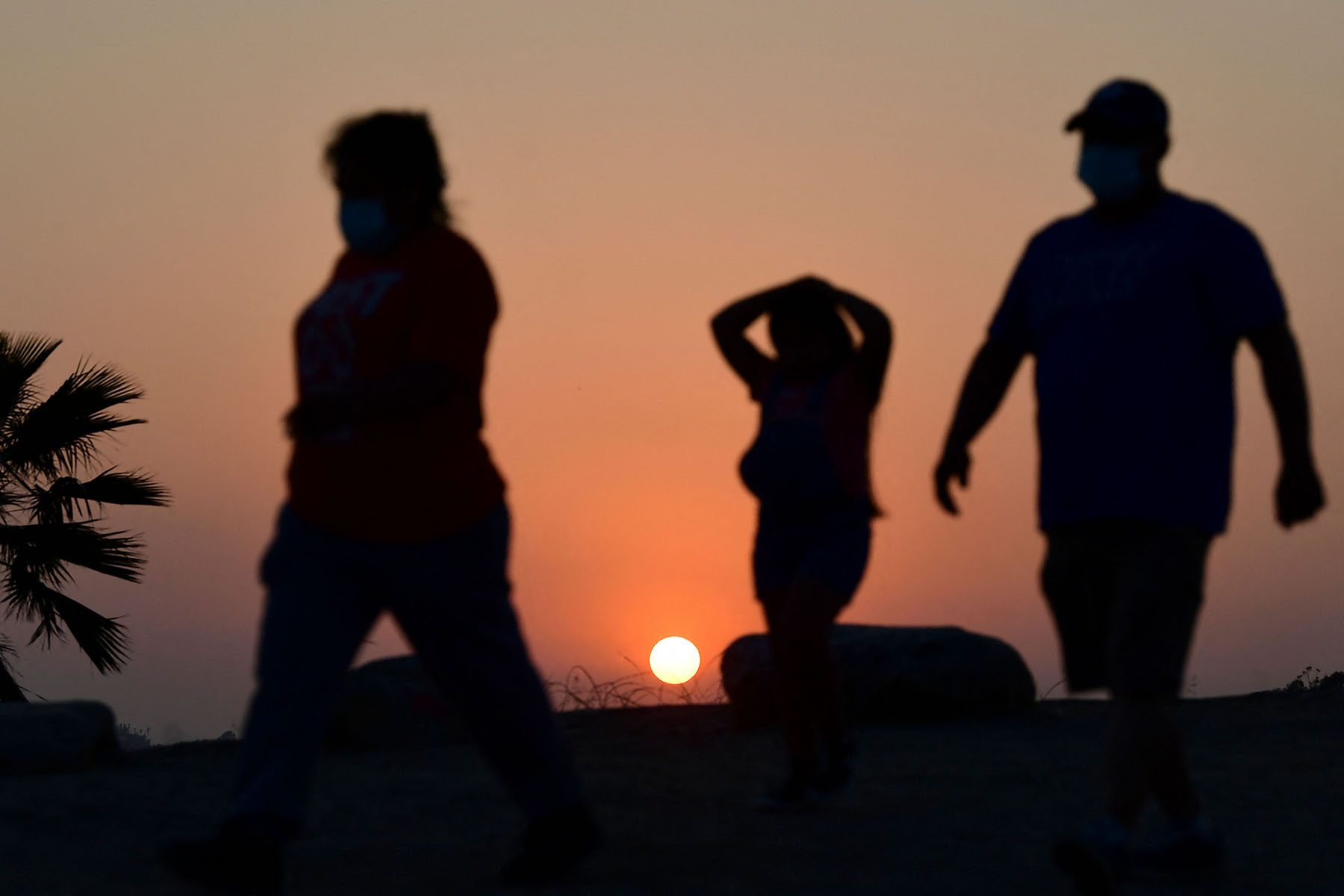A heat wave rolling across the country has sent temperatures exceeding 100 degrees in many cities this week.
This is especially dangerous for pregnant people, who along with the elderly and young children are particularly vulnerable to heat illness and exhaustion. A growing body of research also indicates that heat has been correlated with an increased risk of negative birth outcomes, including preterm birth, lower birth weight and stillbirth.
While this is the first heat wave of 2022 in the United States, climate change is making these events more frequent, and already this summer has broken records across the country. This is in line with an increase in average summer temperatures in the last several decades, with the West and Southwest experiencing the biggest changes, according to Climate Central, a nonprofit climate communication organization.
In the United States, disasters worsened by climate change, like heat waves, hurricanes and wildfires, disproportionately impact low-income communities of color, where people also have less resources like air conditioning to cope with the changing climate.
The 19th spoke with experts to better understand just how dangerous heat can be to pregnant people and to provide information on how a pregnant person should navigate the upcoming summer.
Why are pregnant people more at risk during heat waves or extreme heat?
The ability to maintain a consistent and safe body temperature, or what’s known as thermoregulation, is more complicated for pregnant people. Heat from a growing fetus, a larger body-mass-to-surface-area ratio and a harder-working heart all make regulating body temperature more challenging during a pregnancy, said Amelia Wesselink, a research assistant professor of epidemiology at the Boston University School of Public Health in an email.
Adding extreme heat to that challenge makes everything that much more difficult. “If we think about it really simply, your body is cooling for two, your body is in overdrive working really hard to create the next generation,” said Adelle Monteblanco, an assistant professor of sociology at Middle Tennessee State University. “That increased exposure [to heat] puts them at even more risk for heat-related illnesses.” According to a review of the latest research, it can lead to a “reduction in placental blood flow, dehydration, and an inflammatory response that may trigger preterm birth.”
-
More from The 19th
- A tampon shortage, during a formula shortage, during a child care shortage
- Pushed by lawmakers and the formula shortage, FEMA boosts efforts to support breastfeeding families during disasters
- As climate change worsens hurricane season in Louisiana, doulas are ensuring parents can safely feed their babies
When during pregnancy should someone be most concerned about extreme heat or heat waves? Does it change by trimester?
There are risks throughout pregnancy associated with heat exposure, but there are limits to what experts know, Wesselink said. Little confirmed data is available about the risk of heat exposure early in pregnancy.
Some information becomes clearer a few months down the line.
“We know that exposure to extreme heat during the second half of pregnancy is associated with higher risk of preterm delivery, lower birth weight and stillbirth,” Wesselink said. “There is also some evidence that mid-pregnancy exposure can influence maternal health outcomes like preeclampsia and gestational hypertension.”
Dr. Nathaniel DeNicola, an obstetrician who is also an environmental health expert for the American College of Obstetricians and Gynecologists, said extreme heat was found to be a risk factor for premature birth, particularly near the end of a pregnancy.
What temperature is considered too hot for a pregnant person?
There is no one temperature that researchers can pinpoint as being dangerous, though experts say that duration of exposure is likely one factor.
What’s considered a dangerous temperature could be different for different people as well. “There is this concept called heat tolerance which refers to how your body adapts to a rapid change in temperature,” DeNicola said. For every person this tolerance is different.
So if someone lives in an already hot climate, higher temperatures could be less noticeable than for someone experiencing a big spike in temperature. “Your body will feel more of a shock,” he said. “That 15-degree change will be more impactful on your health.” Experts said that, in general, it is a good idea to check the weather forecast to get a sense of upcoming temperature spikes.
It also matters how a pregnant person is taking care of themselves during a heat wave. Are they able to stay indoors and find shade? Are they drinking enough water? The ability to take these measures can be complicated by other factors, including whether someone works outdoors for example.
What are some signs of overheating?
Pregnant people tend to feel warmer than someone who isn’t pregnant, in part because of the increased blood volume. While it may be difficult to distinguish from regular pregnancy discomforts, DeNicola said, all the standard warning signs apply, including feeling more fatigued, dehydrated or lightheaded. On the more extreme end, contractions can be brought on because of dehydration, he said.
Generally speaking, anyone having contractions at five-minute intervals for more than an hour should call a doctor, DeNicola said.
What can pregnant people do to stay safe during a heat wave?
Hydrate, hydrate, hydrate! Because pregnant people’s blood volume can increase by up to 50 percent, they need more water than usual and are more sensitive to becoming dehydrated. “There is no exact amount of water that I can say to hit every day, but they need to be well ahead of thirst, said DeNicola. “If they are feeling thirsty, they are behind.”
Monteblanco also suggests having on hand water-rich snacks like watermelon and cucumber. Putting wet washcloths in the fridge or freezer that can later be placed on the wrists or the neck can also be handy, she said.
For those with no or limited access to air conditioning, check local government websites for a list of cooling centers. These are air-conditioned places where people can go for free, usually during the day, to escape the heat. Other options are libraries, malls and movie theaters, said Monteblanco. If they can, “they need to take the opportunity to slow down, stay inside and avoid strenuous activities,” she added.








